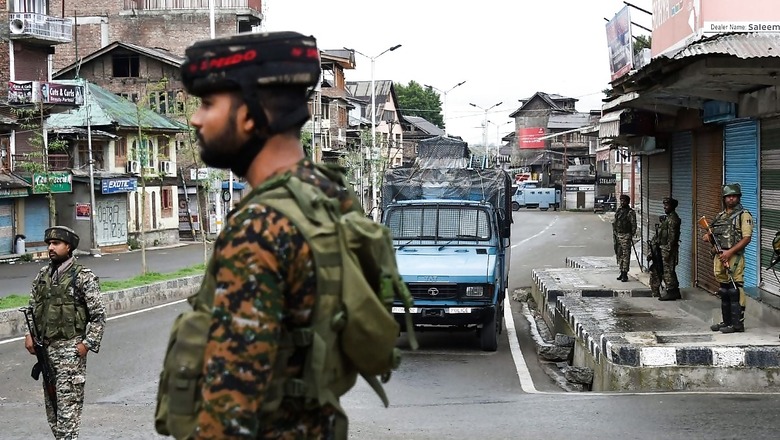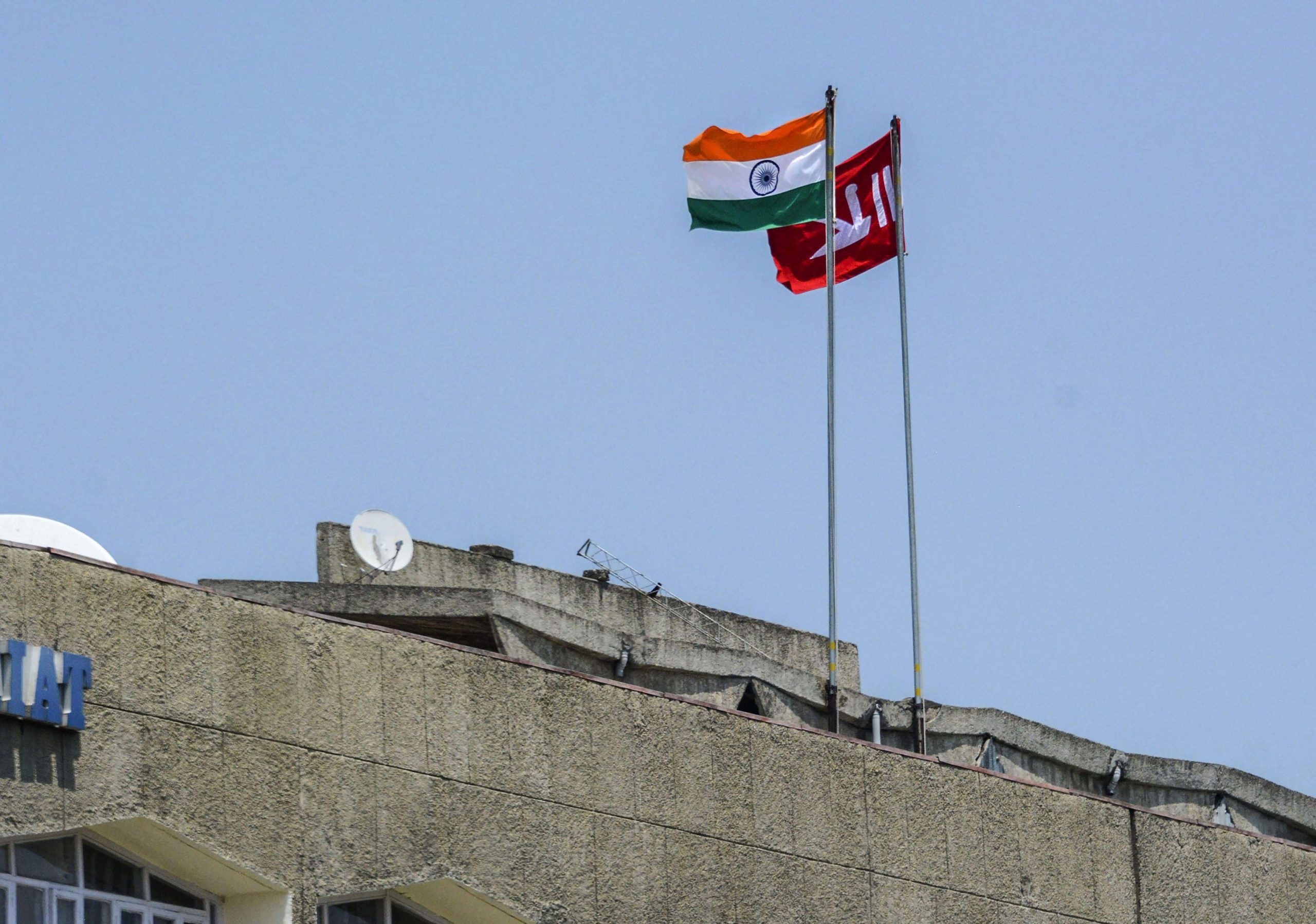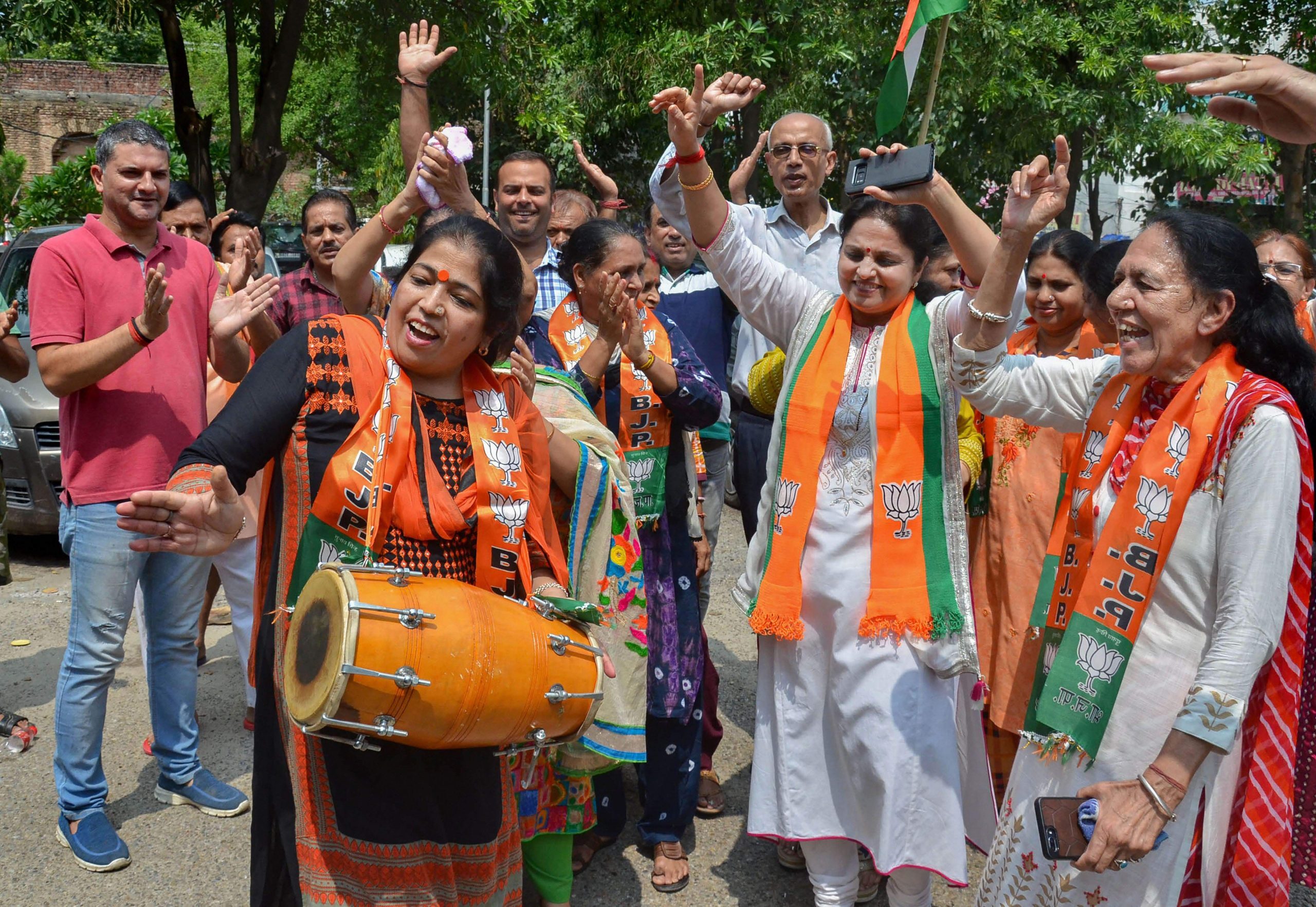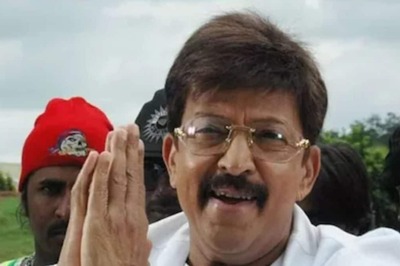
views
The Supreme Court on Monday unanimously upheld the Centre’s decision to abrogate Article 370 that provided special status to the Jammu and Kashmir and said Article 370 was a temporary provision.
A five-judge Constitution bench, headed by Chief Justice DY Chandrachud, delivered three concurring judgements upholding abrogation of the Constitutional schemes that provided special status to Jammu and Kashmir when it was annexed to the Union of India in 1947.
The SC held that J&the state of Jammu and Kashmir did not retain any element of sovereignty after its accession to India in 1947. The apex court also upheld the validity of the decision to carve out the union territory of Ladakh from Jammu and Kashmir on August 5, 2019.
What is Abrogation of Article 370?
In a major decision on August 5, 2019, the Union Government decided to repeal the provisions under Article 370 of the Constitution of India, which granted a special status to the state of Jammu and Kashmir. Union Home Minister Amit Shah announced in Rajya Sabha that the government had scrapped the special status granted to the state of Jammu and Kashmir by modifying Article 370 of the Constitution.
The government issued a Presidential Ordinance that stripped Jammu and Kashmir of special status under Article 370 and repealed Article 35A. The Rajya Sabha also passed the Jammu and Kashmir Reorganisation Bill, which proposed the bifurcation of the state into two union territories- Ladakh and Jammu-Kashmir.

The government on August 6, 2019 introduced two bills and two resolutions regarding Jammu & Kashmir (J&K) in Lok Sabha to replace the Presidential Order. Following the August 5 move, the government put several opposition leaders under house arrest and imposed a communication blackout in the entire valley, including landlines, mobile phones, internet and satellite channels.
What are Article 370 and 35A?
Article 370: Article 370 was a temporary provision added to the Indian Constitution as a result of the Instrument of Accession signed on October 27, 1947, by the last Dogra Maharaja of Jammu and Kashmir, Maharaja Hari Singh.
The document provided for special constitutional status to Jammu and Kashmir. Article 370 of the Indian Constitution is a provision that allows special status to the state of Jammu and Kashmir. By this provision, the laws which are applicable to other states are not applicable to the State of Jammu and Kashmir.
Article 370 granted J&K the authority to have a separate constitution, a state flag, and internal administrative autonomy while it was governed by India as a state from 1952 until October 31, 2019. It specifies that except for Defence, Foreign Affairs, Communications, and Ancillary matters, Parliament needs the state government’s concurrence for applying all other laws.
Article 35A: Article 35A comes under Article 370 grants special privileges and rights to the people of Kashmir and was introduced through a Presidential Order in 1954, on the recommendation of the J&K Constituent Assembly.

The Article empowered the state legislature to define who the state’s ‘permanent residents’ were, along with their special rights and privileges. It prevented the outsiders of the state from either seeking permanent settlement in the state or buying immovable property in the state. It also prevents those who are not permanent residents of the state to get government jobs in the state.
What Changed After August 2019 Move?
- Jammu and Kashmir will no longer have separate flag, constitution, or anthem.
- The citizens of J&K will not have dual citizenship and they will be citizens of India alone.
- The citizens of J&K will have the Fundamental Rights in the Indian Constitution, which was not the case earlier.
- All laws passed by the Parliament will be applicable in Jammu and Kashmir, including the Right to Information Act and the Right to Education Act.
- The Indian Penal Code (IPC) will replace the Ranbir Penal Code of the state.
- Any Indian citizen from any part of the country can buy property in the state and take a state government job and enjoy government provisions like scholarships and schemes.
What are the Petitions Before the Supreme Court?
Soon after the government’s move in August 2019, several petitions were filed in the Supreme Court challenging the abrogation of the provisions of Article 370 and the Jammu and Kashmir Reorganisation Act, 2019.
The petitions challenging the abrogation of the provisions of Article 370 and the validity of the Jammu and Kashmir Reorganisation Act, 2019 were referred to a five-judge Constitution Bench in 2019 by a three-judge bench led by former CJI Rajan Gogoi. In March 2020, when the court heard the matter, a five-judge bench presided by Justice NV Ramana refused to refer the case to a larger bench.
The arguments in the matter had commenced on August 2 and the hearing went on for 16 days after which the apex court reserved its verdict in the matter on September 5.
During the hearing, the top court heard Attorney General R Venkataramani, Solicitor General Tushar Mehta, senior advocates Harish Salve, Rakesh Dwivedi, V Giri and others on behalf of the Centre and the intervenors defending the abrogation of the provisions of Article 370.
Senior advocates, including Kapil Sibal, Gopal Subramanium, Rajeev Dhavan, Zaffar Shah and Dushyant Dave, had argued on behalf of the petitioners.
The lawyers had dwelt on various issues, including the constitutional validity of the Centre’s decision to abrogate the provisions of Article 370, the validity of the Jammu and Kashmir Reorganisation Act, which split the erstwhile state into two Union territories, challenges to the imposition of the governor’s rule in Jammu and Kashmir on June 20, 2018 and the imposition of the president’s rule on December 19, 2018 and its extension on July 3, 2019.
During the hearing, the apex court had asked who can recommend the revocation of Article 370 in Jammu and Kashmir when no constituent assembly, whose concurrence was required before taking such a step, exists there.
The top court had also asked as to how can a provision (Article 370), which was specifically mentioned as a temporary provision in the Constitution, become permanent after tenure of the Jammu and Kashmir constituent assembly came to an end in 1957.
















Comments
0 comment